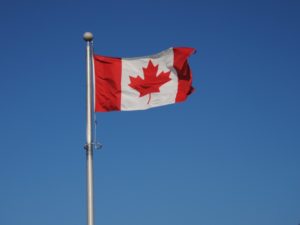Most media sources are reporting the Wet’suwet’en protest as an anti-pipeline protest, when in truth it’s much more about the sovereignty rights of an oppressed people than it is about a pipeline.
The Wet’suwet’en never signed any land treaties with the colonizing government; in 1997, the Supreme Court of Canada even recognized their Aboriginal title to the land. This means that the Wet’suwet’en have sovereignty over the land, are responsible for its stewardship, and are essentially a sovereign people. This should mean that they are able to go on as tradition dictates.

Their traditional form of governing body is made up of hereditary chiefs. The elected chief system, however, is the one recognized by the government. Elected chiefs were imposed on First Nations by the colonial government less than 150 years ago, in The Indian Act of 1876. In the eyes of the Canadian government, elected chiefs have authority over reserve land, but in the eyes of the Wet’suwet’en, the hereditary chiefs should have that jurisdiction.
This is where the Wet’suwet’en people’s story comes into perspective a little more.
The elected chiefs voted in favour of the pipeline going through, but the hereditary chiefs voted against it.
The media, however, has glossed over this fact and instead paints it as an anti-pipeline protest, which is inaccurate and takes away from the fact that what is happening on Wet’suwet’en land is an infringement on human rights. The RCMP is continuing a longstanding tradition of violence and intimidation against Indigenous people by showing up in fully militarized gear to arrest the peaceful land defenders on their own land.
The catalyst for the tensions may have been the pipeline this time, but the history of systemic racism goes back hundreds of years. From residential schools to Indigenous people’s status being revoked to the long history of assimilation by force, the Indigenous people of Canada have been historically subjugated, oppressed, and discriminated against through every stage of the formation of the country. In order to call ourselves a truly multicultural nation, we must start to mend the relations with First Nations.
The Wet’suwet’en situation is a good place to start listening to the hereditary chiefs and, by extension, the people, instead of going ahead with the pipeline in the name of money.
